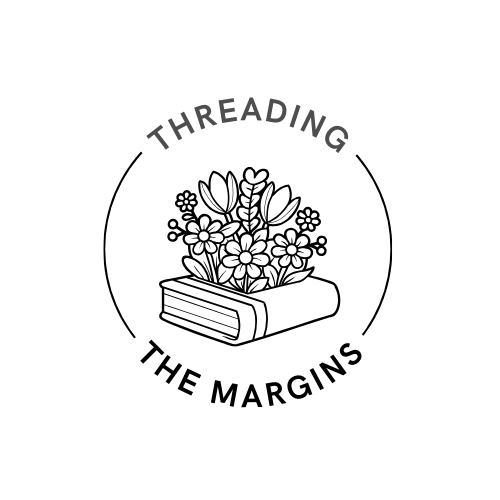Trade Routes and Talking Points
Classes are over. My brain is fried. I wanted to rot in peace.
So, naturally, I decided to rewatch the entire Star Wars saga from start to finish, in chronological order. I thought I’d be zoning out to laser swords and space wizards. Instead, The Phantom Menace slapped me in the face with trade disputes, political theater, and a plotline that felt way too close to home.
Thanks for reading Imene’s Notes! Subscribe for free to receive new posts and support my work.
Sure, the dialogue still clunks, and Jar Jar’s still… Jar Jar. But beneath the CGI is something eerily prescient: a story about how democracy collapses, not with violence, but with paperwork and polite applause.
And it’s impossible to watch it now without seeing the shadows of Trumpism. Not just the man, but the whole political ethos that weaponizes chaos, undermines institutions, and promises salvation through one strong voice.
The Galactic Republic in The Phantom Menace is a shell of itself. The Senate is bogged down by procedure, flooded with special interests, and unable to act meaningfully. Chancellor Valorum is a decent man rendered impotent by bureaucracy. Into this void steps Senator Palpatine, who presents himself as a solution.
Likewise, Trump didn’t rise in spite of the political system—he rose because of its failure. After years of partisan gridlock, corporate capture, and declining trust in public institutions, voters were primed for someone who promised to break the mold. And Trump delivered, not with policy, but with performance.
Both figures are insiders pretending to be outsiders. That’s the trick. The more broken the system looks, the more appealing a strongman becomes.
And this isn’t just about policy—it’s about spectacle. On May the 4th, Trump (or his team) posted a meme of him holding a red lightsaber, muscles exaggerated, styled like a Sith Lord action figure. It was campy, absurd—and completely on-brand. The red saber wasn’t just a prop. It was a flex. A performance of dominance, cloaked in pop culture, amplified by irony.
The imagery mirrors Palpatine’s shift from senator to space sorcerer: cartoonish, theatrical, but undeniably powerful. This is politics as branding. You don’t need people to believe in the system anymore—you just need them to believe you are the only one strong enough to control the chaos.
Palpatine engineers the Naboo blockade through the Trade Federation to create a crisis. He doesn’t need war—he needs fear. It’s a strategic play: destabilize a small planet, then offer leadership amid the chaos.
We’re watching the same playbook today.
In May 2025, the U.S. imposed sweeping new tariffs on Chinese electric vehicles, semiconductors, and solar panels. Officially, it’s about “economic security.” In reality, it’s political theater. The tariffs rally nationalist sentiment, play well on the campaign trail, and distract from deeper economic pain: stagnant wages, rising debt, and shrinking middle-class stability.
Like Naboo’s blockade, these tariffs create the illusion of bold action while obscuring the real rot underneath. And just like in Star Wars, the people footing the bill aren’t the elite players pulling strings—it’s working households caught in a geopolitical stunt.
Let’s not forget: Palpatine is no rebel. He’s a wealthy, connected elite from a peaceful planet who uses populist language to cloak imperial ambitions. He doesn’t smash the system. He hacks it from within.
Trump did the same. A billionaire heir and reality TV star, he rebranded himself as an anti-elite crusader. It didn’t matter that he benefited from the very structures he denounced—he understood the rage, channeled it, and turned it into power.
In both stories, the lesson is clear: populism doesn’t have to come from the bottom. It often comes from the top—when someone figures out how to weaponize frustration without ever threatening their own position.
The Jedi in Phantom Menace represent tradition and order. But they’re slow, cautious, and ineffective in the face of growing instability. Palpatine doesn’t attack them directly—not yet. He just lets the public lose faith in them.
This is how authoritarianism begins: not by abolishing institutions, but by eroding trust in them.
Trumpism followed the same script. The media became “fake news.” The courts were “rigged.” The FBI, the CDC, even elections themselves—cast as tools of corruption or manipulation. Once people stop trusting referees, it doesn’t matter who plays fair. You’ve already broken the game.
And the truly brilliant part? It’s done under the banner of democracy. “Just asking questions.” “Just protecting the people.” The mask stays on until it’s too late.
Palpatine doesn’t unify the galaxy. He splits it—region against region, interest against interest—so he can consolidate control while everyone else is too busy fighting each other to notice.
Modern politics often functions the same way. Outrage over cultural flashpoints—book bans, pronouns, symbolic boycotts—dominates headlines. Meanwhile, policies that actually shape lives (housing, healthcare, taxation) go unexamined.
The 2025 tariffs? Classic distraction. They give politicians something loud to point to while avoiding the messy work of real economic reform. Divide the populace, light a fire, then walk away with the match.
The Phantom Menace doesn’t end in war. It ends in applause. The Senate cheers as Palpatine becomes Supreme Chancellor—democratically, legally, and with overwhelming support.
Padmé’s line in Revenge of the Sith—“So this is how liberty dies, with thunderous applause”—isn’t about one regime. It’s about all of them. About how power doesn’t always arrive in jackboots. Sometimes it walks in through the front door, smiles, and calls itself stability.
What makes The Phantom Menace unnerving isn’t the lightsaber fights. It’s the political realism. Democracies don’t always fall in fire. Sometimes, they fade in red tape, rage clicks, and weaponized crises.
Lucas wasn’t making a prequel. He was writing a prophecy.

